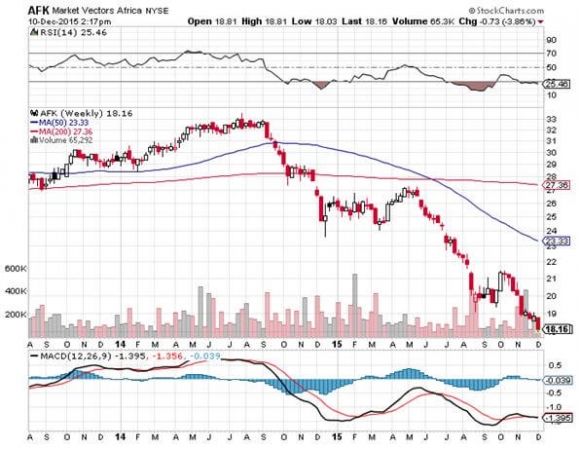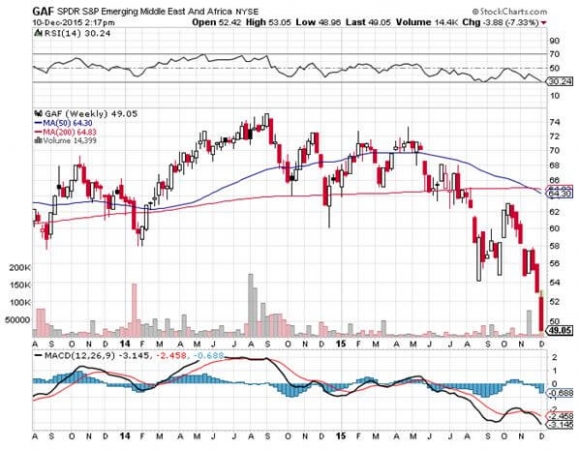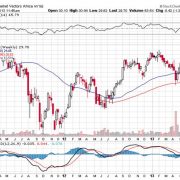Make Your Next Killing in Africa
Feel like investing in a state sponsor of terrorism? How about a country whose leaders have stolen $400 billion in the last decade and has seen 300 foreign workers kidnapped? Another country lost four wars in the last 40 years.
Still interested? How about a country that suffers the world?s highest AIDS rate, regularly endures insurrections where all of the Westerners are rounded up and massacred, and racked up 5 million dead in a continuous civil war?
Then, Africa is the place for you, the world?s largest source of gold, diamonds, chocolate, and cobalt!
The countries above are Libya, Nigeria, Egypt, and the Congo. Below the radar of the investment community since the colonial days, the Dark Continent has recently been attracting the attention of large hedge funds and private equity firms.
Goldman Sachs has set up Emerging Capital Partners, which has already invested $2 billion there. China sees the writing on the wall, and has launched a latter day colonization effort, taking a 20% equity stake in South Africa?s Standard Bank, the largest on the continent.
In fact, foreign direct investment last year jumped from $53 billion to $61 billion, while cross border M & A leapt from $10.2 billion to $26.3 billion.
The angle here is that all of the headlines above are in the price, that price is very low, and the perceived risk is much greater than actual risk. Price earnings multiples are low single digits, cash flows are huge, and returns of capital within two years are not unheard of.
The reality is that Africa?s 900 million have unlimited demand for almost everything, and there is scant supply, with many firms enjoying local monopolies.
African GDP growth took off like a rocket in 2003, nearly tripling, thanks to the global commodity and precious metals boom and the taming of AIDS with free generic antiretroviral drugs. Equity markets don?t reflect this yet.
The big plays are your classic early emerging market targets, like a rising middle class, banking, telecommunications, electric power, and other infrastructure.
For example, in the last decade, the number of telephones has soared from 350,000 to 10 million. It reminds me of the early days of investing in China in the seventies, when the adventurous only played when they could double their money in two years, because the risks were so high.
This is long term back book stuff and is definitely not for day traders. If you are willing to give up a lot of short-term liquidity for a high return, then look at the Market Vectors Africa Index ETF (AFK), and the SPDR S&P Emerging Middle East & Africa ETF (GAF).







